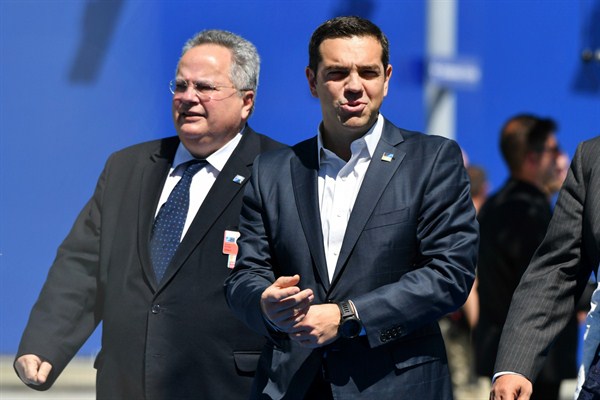Editor’s Note: This article is part of an ongoing series about NATO members’ contributions to and relationships with the alliance.
While Greece continues to be one of only five NATO countries meeting the alliance goal of spending 2 percent of GDP on defense, economic contractions in recent years have meant that the amount of real investment has decreased considerably. However, because of long-running security concerns such as the perceived threat posed by Turkey and new challenges like the migration crisis, the portion of the budget going to defense is expected to remain relatively high. In an email interview, Dr. Thanos Dokos, director of the Hellenic Foundation for European and Foreign Policy in Athens, describes Greece’s role in NATO and the country’s security priorities.
WPR: How has Greece’s role in NATO evolved in recent years, and to what extent has Greece been involved in various NATO missions?

